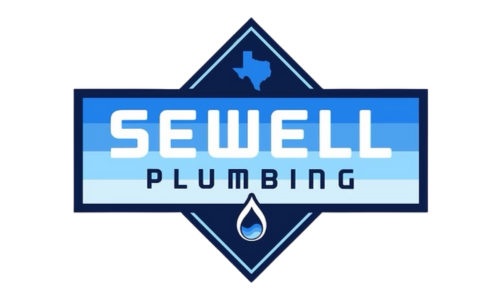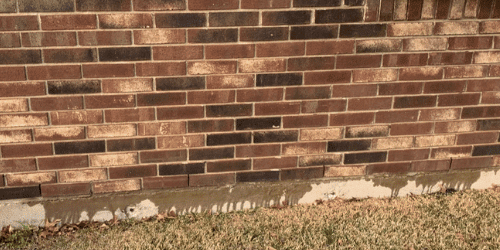In McKinney and Prosper, TX, proactive leak detection and water conservation are crucial for sustaining our homes, preserving resources, and minimizing utility costs. Water leaks, whether in plumbing, heating systems, or drainage, can lead to high bills, structural damage, and environmental impact. A solid understanding of leak detection methods and water-saving strategies can empower residents to protect their properties and help conserve water.
Key Takeaway: Addressing leaks promptly and practicing water conservation improves household efficiency and contributes to sustainable water use in McKinney and Prosper.
Understanding Leak Detection: Tools and Techniques
Leak detection encompasses various tools and techniques that make it easier to identify and address hidden water issues. Proper leak detection is essential for preventing minor issues from escalating into major problems, especially in areas prone to temperature changes and humidity, like North Texas.
Sound and Sensor-Based Detection
Sensor-based leak detection systems use technology to identify leaks in real time. They are especially effective in hard-to-reach places, such as inside walls or under floors. Sound-based detection tools amplify the sound of water escaping from pipes, enabling plumbers to identify precise leak locations quickly.
Visual Inspection and Pressure Testing
Routine visual inspections can uncover early signs of leakage, such as water stains, peeling paint, and damp patches. In pressure testing, professionals evaluate the entire plumbing system’s pressure to detect unseen leaks, allowing for comprehensive assessments.
Thermal Imaging
Thermal imaging cameras detect temperature variations within walls and floors, helping to locate leaks even when they’re deep within the structure. This method is minimally invasive and highly effective in identifying concealed issues.
Discover more about plumbing systems and how different leak detection technologies contribute to maintaining a healthy, leak-free environment in your home.
Types of Common Household Leaks
Leaks can originate from various household systems, each with its own set of causes, risks, and detection methods. Below are some typical areas where leaks commonly occur.
Kitchen and Bathroom Fixtures
Fixtures like sinks, toilets, and faucets are common culprits. These leaks are often due to worn-out seals, high water pressure, or corrosion. Regularly checking these fixtures can save significant water and prevent damage to cabinets and walls.
Water Heaters
Water heater leaks, whether from the tank or connecting pipes, can cause flooding and result in water heating inefficiencies. Tankless water heaters can mitigate some leak risks due to their design, but periodic inspection is still recommended.
Underground and Foundation Leaks
Underground leaks often stem from main water lines and can lead to foundation damage, a particular concern in Texas due to soil types that expand and contract. Early detection is key in these cases to prevent costly structural repairs.
For more visual insight into what foundation and fixture leaks might look like, explore Sewell Plumbing’s gallery.
Benefits of Water Conservation Practices
Water conservation offers several benefits, ranging from financial savings to environmental sustainability. Implementing water-saving practices can help reduce water wastage significantly, benefiting both homeowners and the broader community in McKinney and Prosper.
Reducing Water Bills
Conserving water can lower utility bills, a major incentive for many households. Simple steps like fixing leaks promptly and using low-flow fixtures contribute to cost savings over time.
Environmental Impact
By conserving water, homeowners contribute to a larger community effort to protect regional water resources. Given the rapid growth of areas like Prosper, TX, conserving water helps reduce demand on local water supplies.
Longevity of Plumbing Systems
Water conservation also reduces strain on your plumbing system, helping it to last longer and lowering the likelihood of leaks and other water-related issues over time.
Answering Common Questions
How can I tell if there’s a hidden leak in my home?
Look for unusual spikes in water bills, damp spots on walls or ceilings, and the sound of running water when fixtures are off. Regular inspections or hiring a professional plumber can help detect hidden leaks.
What should I do if my water heater is leaking?
Turn off the water supply and power source to the heater. Contact a professional plumber immediately, as delaying repairs can lead to further damage or even water heater replacement.
Are tankless water heaters less prone to leaks?
Yes, tankless water heaters generally experience fewer leaks than traditional tanks since they don’t hold large volumes of water, but they still require routine maintenance to stay in optimal condition.
Enhancing Leak Detection with Professional Help
Incorporating routine leak detection with the help of professionals ensures peace of mind and can prevent small issues from escalating into costly repairs. Professional plumbers, like those at Sewell Plumbing, bring expertise and specialized tools to accurately detect and resolve leaks, whether in fixtures, pipes, or underground lines.
Conclusion: Take Action for a Leak-Free, Sustainable Home
Water leaks can cause substantial damage, increase water bills, and lead to significant water waste. Implementing leak detection practices and prioritizing water conservation helps homeowners maintain efficient systems and reduce their environmental footprint. For those in McKinney or Prosper looking to protect their homes and support a sustainable community, Sewell Plumbing offers a range of leak detection and repair services.
Consider visiting the McKinney Chamber of Commerce for more local resources on sustainable home maintenance.







